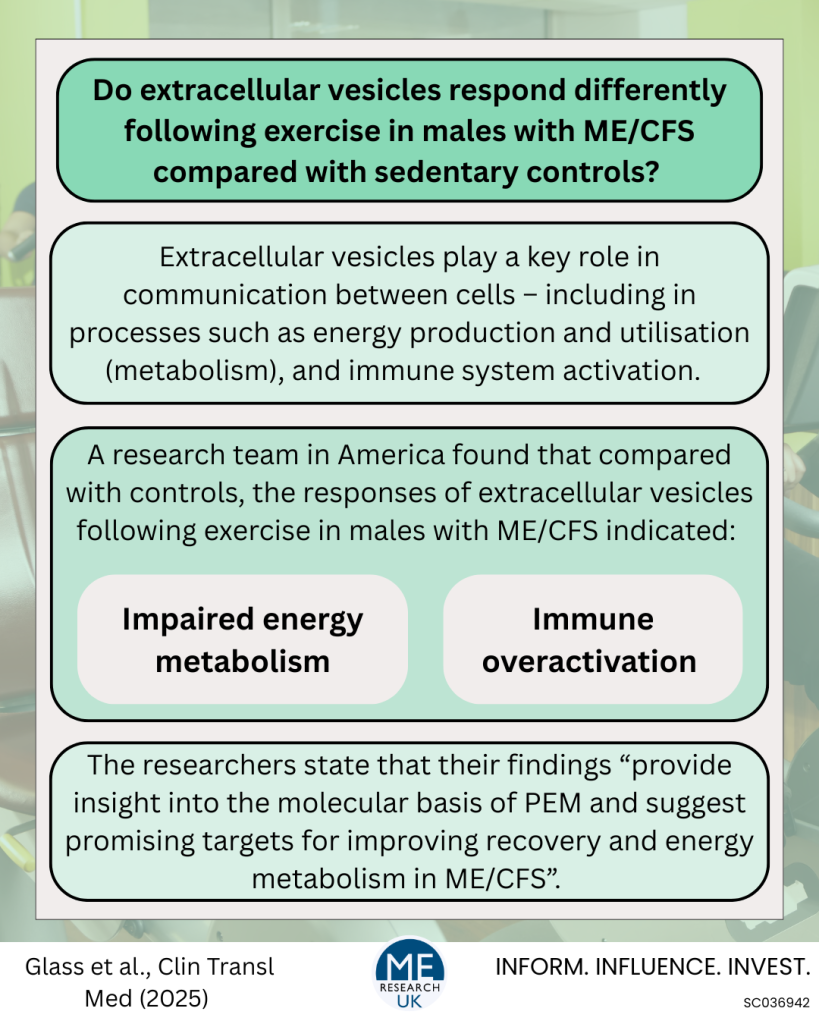A study published in the Journal ‘Clinical and Translational Medicine’ has identified significant differences in the responses of extracellular vesicles – particles in the body which play a key role in communication between cells – following exercise between males with ME/CFS and male sedentary controls. This study follows a previously published paper by the research team considering extracellular vesicle response to exercise in female participants in ME/CFS.
The researchers recruited 10 males with ME/CFS – diagnosed using the Canadian Consensus Criteria – and 12 sedentary controls who were matched for age, sex, and body mass index (a measure of weight according to height).
Once the participants had been informed about the study and consented to take part, researchers invited them to complete an exercise test using a stationary bike.
Blood samples were collected before the test (at baseline), after the test at 15 minutes, then at 24 hours after the exercise.
Compared with the controls, the responses of extracellular vesicles following exercise in males with ME/CFS indicated:
- Impaired energy production and utilisation: (metabolism) downregulation of proteins relating to a series of chemical reactions that occur in mitochondria (the Krebs or TCA cycle) – this process is essential for energy production.
- Immune overactivation: upregulation of proteins relating to the complement system – part of the immune system which helps to facilitate healing and defend against infections.
Interestingly, changes in the stress response of the endoplasmic reticulum – a component in cells which is involved in the production of proteins – were related to the severity of post exertional malaise (PEM). Protein changes after exercise were also associated with ME/CFS severity and unrefreshing sleep.
The researchers state that “These findings provide insight into the molecular basis of PEM and suggest promising targets for improving recovery and energy metabolism in ME/CFS”.
Importantly this study provides evidence relating to ME/CFS in men – men are under-represented in ME/CFS research, and this means that most of the evidence relating to ME/CFS, and the healthcare based on it, may not be applicable equally to men with the disease. Although a similar study was previously conducted in females with ME/CFS and sedentary controls, the research team explain that a direct comparison between male and female in findings is not possible, as these studies were conducted years apart.
ME Research UK also notes that it would also be important to consider whether the biological abnormalities identified in the small number of males with ME/CFS in this study, could also be seen in across a larger more diverse sample size, and in females with the disease. It would also be essential to consider whether there were any differences in mechanisms were between the sexes.





